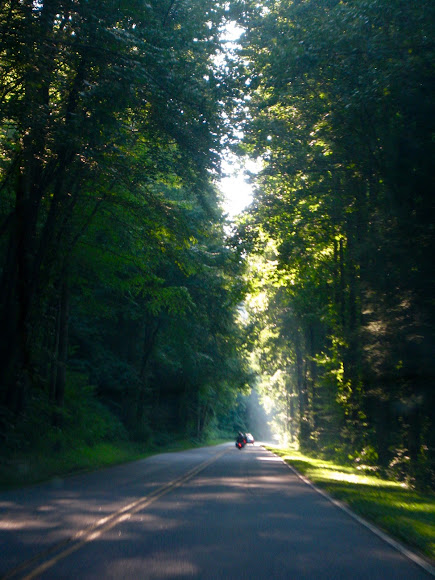 |
| Amsterdam. Recent watercolor. |
The Desert Fathers and Mothers, according to Kathleen Norris’s Acedia and Me defined sin as “bad thoughts.” They said that sin, at its source, was a matter of the mind, of skewed thinking. From these bad thoughts came bad actions.
Somewhere along the line bad actions began to edge out bad thoughts in importance. “Well, everyone has bad thoughts,” we say, “you can’t control them, so just concentrate on the actions. Besides, bad thought alone, don’t hurt anyone” And while it is true from a victim’s standpoint, (I would much rather you think bad thoughts about me then physically assault me,) neglecting the inner source of the drive to assault me (bad thoughts of greed, impatience, competition, control, etc) fails to address the human condition at its core, thus cutting off the thinker in this scenario from the only path of rescue.
The church as it grew in power both politically and socially, turned the Desert Fathers’s and Mother’s focus from our inner thinking to something the church could better regulate, our actions. The 8 deadly “bad thoughts” of the monastic tradition became the 7 deadly “bad actions” or sins of the Church.
Acedia, that torpor of the soul was left on the editing floor.
In the 6th century Pope Gregory I combined Acedia with sorrow or melancholia. There can certainly be an element of sorrow in Acedia, in its earliest stages at least, but sorrow indicates a level of caring, whereas the endgame of Acedia is a lack of caring.
In more modern times the Catholic Church joined Acedia with sloth as if they were the same thing. But that’s sloppy thinking. They are not the same. Sloth is closer to laziness, while Acedia is closer to emptiness. On a Venn diagram, there are places where they overlap, but all sins have some commonality with each other, and we have lost something important when we forget that bad actions begin with bad thoughts and that Acedia, one of the Desert Father’s top three, “bad thoughts” is as relevant to the miserable state we find ourselves in both individually and nationally as show-ier sins like Pride, Greed, Wrath, Envy, Lust. Gluttony, and Sloth.
It is interesting to note that the Desert Father’s and Mother’s top three sins were Acedia, Anger, and Pride, in that order. (Lust, that bugaboo of both the Catholic and Protestant church, was considered an offshoot of greed and one of the lesser “bad thoughts.” )
On the topic of Acedia, the current pope, Francis, writes that Acedia is much more than sloth, Acedia is a lack of caring for anything, even God.
Acedia is the ultimate detachment. Because the opposite of love is not hate, but indifference, Acedia is the true opposite of love. It is an escalating pattern of vacuous “bad thoughts“ that drain one’s ability and desire to care. It zombie-fies us, hollowing us out to where, eventually in its latter stages, even despair and sadness are no longer available.
We no longer experience hope, or joy, and find no comfort in the company of loved-ones or God, or even in our accumulation of Toys: cars, homes, titles—the very things we focused our life energies in acquiring.
No wonder the Desert Fathers placed Acedia at the top of “bad thoughts.” As the soul sickens, all roads eventually lead to Acedia. Even the angry and prideful and greedy will fall to a “lack of caring” in the end as their “bad thoughts” inevitably join with Acedia to rob them of the will to love anything even themselves.
The temptation of Acedia, for me, is that sometimes not-caring about anyone or anything just feels easier than caring.
The thrill of living is gone.
Wonder is gone. Good-will is gone. Empathy is gone. A desert. Dry Bones.
******
Stay curious, my friends. Stay alive. Stay caring. See you soon.


Comments
Post a Comment